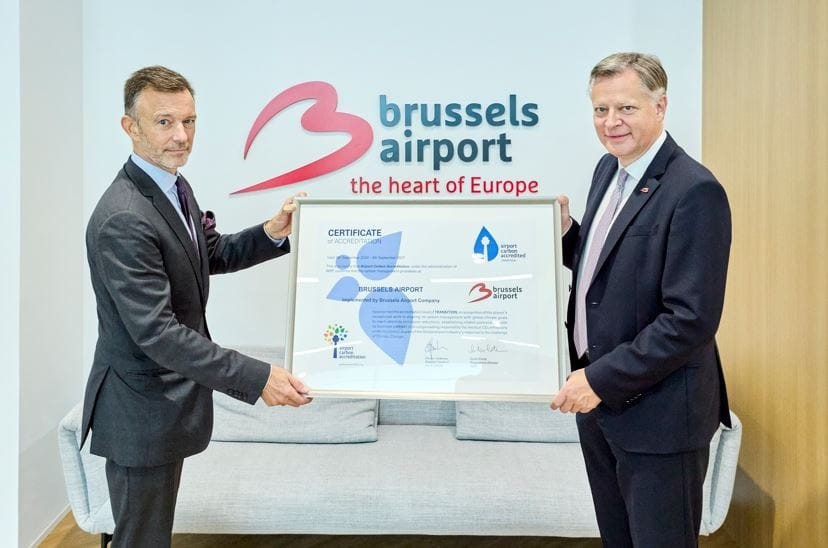
Brussels Airport has achieved Level 4+ accreditation in the Airport Carbon Certification Programme, an independent initiative by Airports Council International (ACI) that assesses and certifies airports based on their CO2 emissions. This makes Brussels Airport the first airport in Belgium to achieve the second highest level of accreditation. Of the 591 ACA participating airports worldwide, Brussels Airport ranks among 67 best-performing airports at Level 4+ or higher (Level 5).
Brussels Airport has achieved Level 4+ in the ACA (Airport Carbon Accreditation) program of ACI EUROPE (Airports Council International), the umbrella organization for more than 500 airports in 55 countries in Europe. The independent program evaluates airports’ efforts to reduce their emissions and certifies them based on their carbon impact on the environment.
Read: Etihad Cargo enhances belly storage capacity with winter schedule
“This recognition represents a significant milestone in the hard work and effort we have invested over the past years to significantly reduce our carbon footprint. Brussels Airport is now one step closer to achieving Level 5, as we remain committed to emitting zero carbon dioxide by 2030 as an operator.” “This shows once again that we are also achieving tangible results on the ground with our CO2 reduction programme,” says Arnaud Vest, CEO of Brussels Airport.
From level 3+ to level 4+
To move from Level 3+ to 4+, Brussels Airport has incorporated additional emissions sources into its calculations, in accordance with the Greenhouse Gas Protocol. This includes the impact of purchased goods and services, waste treatment (from the airport and its partners), and wastewater. In addition, Level 4+ for all departures includes full flight emissions. At lower levels, this is limited to emissions during landing and take-off.
In addition, Brussels Airport has developed a Carbon Management Plan, which sets out the actions the airport operator will take in the coming years to achieve net zero carbon emissions by 2030. This includes encouraging a “paradigm shift” for passengers and employees, as well as converting existing boiler plant rooms that By heating airport buildings with a fossil fuel-free alternative. In addition, airlines are encouraged to deploy more environmentally friendly aircraft through various airport charges and the use of sustainable aviation fuel (SAF).
Read: The customer’s perspective
A Stakeholder Partnership Plan has also been developed in collaboration with the relevant aviation partners, which outlines the actions taken by Brussels Airport and its partners to reduce the airport’s carbon emissions. These initiatives include the electrification of ground handling equipment, along with the establishment of a “Waste Charter” with partners, which details actions to reduce waste and improve recycling practices.
“This important achievement demonstrates that Brussels Airport has fully aligned its CO2 reduction strategy with the objectives of the Paris Agreement. Through initiatives such as the switch to fossil-free heating systems, the electrification of the vehicle fleet, and collaboration with operational partners via the Stakeholder Partnership Plan, The airport has integrated sustainability, especially carbon management, into every aspect of its operations. “Projects like Stargate highlight Brussels Airport’s leadership in sustainable aviation and serve as a strong example,” says Olivier Jankovic, Director General of ACI EUROPE. For the entire industry.
The post Brussels Airport achieves Level 4+ in ACI EUROPE’s Airport Carbon Certification Program appeared first on Air Cargo Week.

